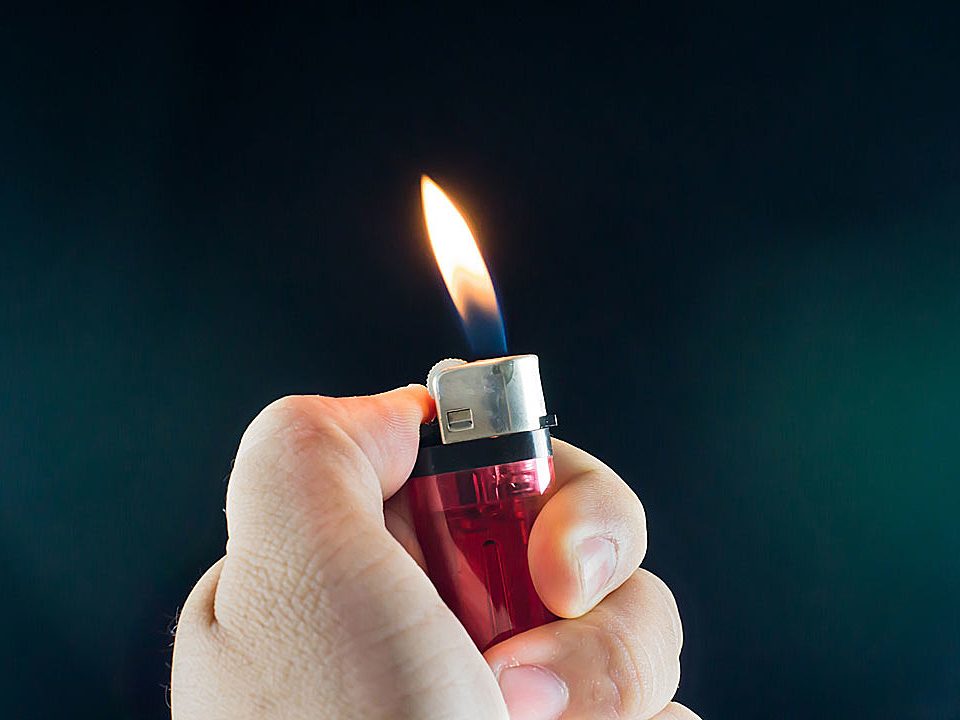The Simple Things In Life
The Simple Things In Life
 I attended Saint Louis University School of Law from 1979 to 1982. There was a McDonald’s restaurant that was located about six blocks from the school. The area where the McDonald’s was located was run-down, and it was not uncommon to run into a homeless person when I stopped at McDonald’s for a bite to eat.
I attended Saint Louis University School of Law from 1979 to 1982. There was a McDonald’s restaurant that was located about six blocks from the school. The area where the McDonald’s was located was run-down, and it was not uncommon to run into a homeless person when I stopped at McDonald’s for a bite to eat.
When the homeless people would ask for money, they would say they needed the money to buy food. I knew they weren’t going to use the money for food. It was common knowledge that they solicited money so they could use it to purchase alcohol or drugs.
Instead of giving homeless people money, I always offered to buy them a meal. The response I usually got was, “I’m not hungry now. Can you give me money so I can eat later today?” Most of the time, they refused to go into the restaurant with me and order food. When that occurred, I refused to give them money.
The homeless people who were willing to go into McDonald’s with me got to order whatever they wanted. I would pay for their food and they would leave the restaurant with the bag of food in their hands. They never sat down inside to eat.
When I opened my law practice in January 1983, I began encountering homeless people when I walked to daily Mass at Sacred Heart Church in downtown Peoria. Usually they would say they needed money for bus fare. Most of them asked for a dime, knowing that if I was going to give them money, I would probably pull out a dollar or more for them.
Nothing has changed much in the past 30 years. Last week, on two occasions, homeless men approached me and asked for money. I have gotten to the point where I usually ignore them or say, “Sorry, I can’t help you.” Instead of giving them money, I ordinarily say a prayer for them, which is of much greater benefit to them than giving them money to purchase alcohol.
Last Thursday, I worked at my office late into the evening and then stopped at the Adoration Chapel for a holy hour. On my way home, I received a phone call from Georgette. She asked me if I could stop at Walmart and pick up some milk. I told her yes, and headed toward Walmart.
I’ve written before about how I don’t like Walmart. I don’t like being forced to walk a block to get from my car to the store entrance, then half a mile to find what I need, and then another block to return to my car. My favorite store is Walgreens. I can park five feet away from the entrance, find the item I need within two minutes, and return to my car within another minute or two.
When I arrived at Walmart, I found a parking space, locked my car, and reminded myself how much I hated going to Walmart. I saw a man sitting in a wheelchair next to the store entrance. He looked like he was in his forties. He hadn’t shaved for several days and it appeared as though he hadn’t changed his clothes for a couple of weeks. He had a box of items sitting on his lap.
He looked like the typical homeless person I see on a regular basis in downtown Peoria.
I knew that if I looked at the man and said hello, he would probably ask me for money. I hesitated to say anything to him, but I noticed that he was staring at me while I walked toward the entrance. As I approached, I said, “How are you doing tonight?” He was waiting for me to say something, and he immediately answered, “I’m doing okay. Could I ask you to do something for me? Would you please help me get to my car by pushing my wheelchair?”
I looked at him and said, “Yes, I’ll be happy to help you out.” I couldn’t help but be suspicious of him. Several questions immediately popped into my head — questions such as, Why can’t he wheel himself to the car? How did he get from his car to the Walmart entrance in the first place? How did he navigate through the store in his wheelchair?
After I started pushing the wheelchair, he said, “Thank you so much for helping. I just need for you to get me to my car and I’ll be okay.” He pointed to where his car was and I pushed the wheelchair until he was next to the driver’s side door.
He pulled out a key that was attached to a 12-inch-long rope. After unlocking the driver’s side door, he asked if I could place his box of groceries inside his car. I did what he asked. He then asked me if I would be willing to help him into the car. Despite being suspicious, I did what he asked and helped him into his car. It was obvious to me that he was handicapped, but I couldn’t figure out whether he was faking some of his limitations.
While I was helping him into his car, I asked, “Were you born with this condition?” He replied, “No, I was in a bad car accident several years ago and I broke my hip in three different places.”
He asked me if I would fold up his wheelchair and place it inside the trunk of his car. I did what he asked, and then I asked him the obvious question: “Do you have someone who is going to help you when you get home?” After he responded by saying no, I asked, “How are you going to get from your car to your apartment?”
He explained to me that he was still able to use his legs to a certain extent, but that it was a struggle for him to walk. He said that he relied a lot on his hands and arms, and that his biggest concern was getting the groceries that needed to be refrigerated from his car to his refrigerator. I told him to be careful and he thanked me for helping him out.
He failed to do the one thing I expected him to do — ask for money.
As I was walking back toward the entrance of Walmart, I couldn’t help but watch my feet take one step at a time. I saw my left foot move forward, then my right, then my left, then my right. I didn’t have to struggle to keep my balance. There was no pain.
I was no longer irritated because it was a long walk through the parking lot and the store. I said a prayer for the handicapped man and then said another prayer of thanksgiving for being able to walk effortlessly without having to think about it.
I thought about the handicapped man a few days later when a client stopped by my office to sign some papers. When he arrived, he looked as white as a ghost and was having trouble breathing. He told me that when he was done with me, he was going to drive to the hospital emergency room.
I asked if he had ever had this problem before and he said that he has COPD (chronic obstructive pulmonary disease), and that every once in a while, his lungs seem to shut down on him. He thought that he would be better after being treated at the hospital. After he left, I thanked God for giving me the ability to breathe effortlessly.
Unfortunately, we tend to take the “simple” things in life for granted, such as walking and breathing. We really should spend more time thanking God for all the things we take for granted.




1 Comment
Dear Georgette and Harry –
A heart warming account, and yet a heart rending one. There are incidents that a man can handle, as you did, and those that a female would be hesitant to offer assistance. As I read your story, I was actually afraid that you were going to be knocked down or otherwise injured as you were trying to be of service to a crippled person. I was relieved that both parts of your story ended well. I find times when mail arrives asking for donations for VERY worthy causes. There were times when I would send a small cash donation. Now that I am living in our Nursing Home, we are asked not to send cash through the mail. We may ask for a check, but no cash is to be sent. This has changed my approach to responding; a promise of my prayers is much better, and I usually add that such a gift is priceless! I do have some “favorites” for which I will send a check once in a while, mostly for our CSJ Missions, but some others – as an example – Peoria Rescue Ministries – to my friends for many years, Jerry and Barb Trecek. On the day we were leaving Peoria in August of 2012, Jerry sent his delivery truck and men to help us load the U-Hall and Malibu, both of which we drove to St. Louis, and we gave them whatever was left in the house other than what the purchasers had asked for. Jerry came with the crew that day, and I met him for the first time, although we had talked on the phone and I had sent mailings for quite some time. Some friendships last forever! Love to you and your family. Sister Roberta